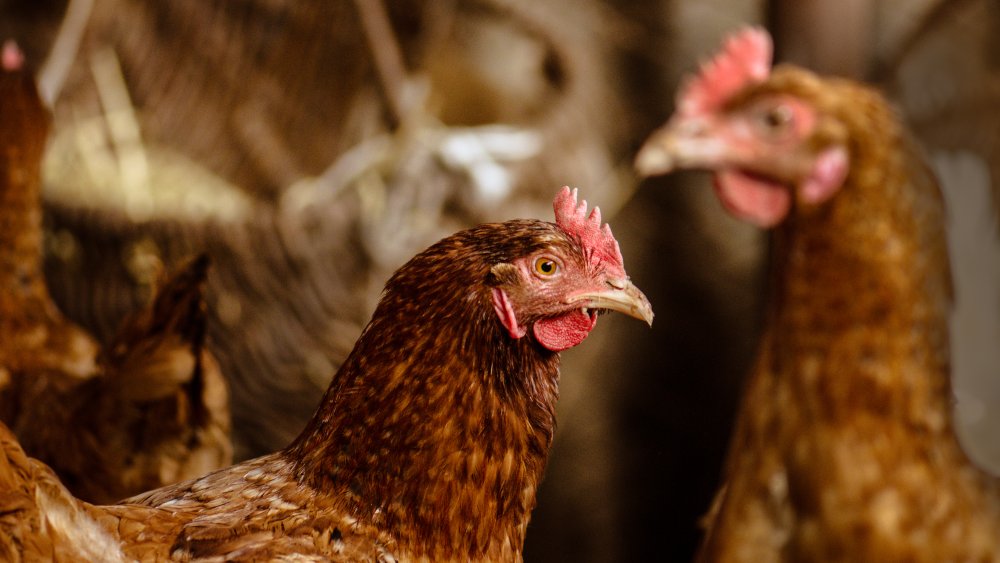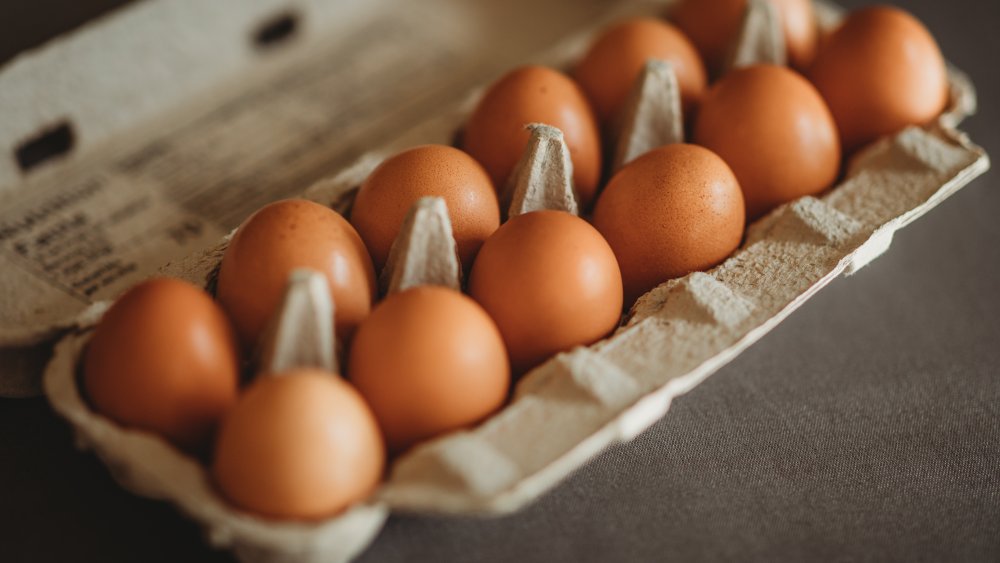The Important Detail You May Not Know About Costco's Eggs
As if you needed yet another reason to like wholesale chain Costco, they've now almost fully transitioned to selling cage-free eggs in the United States (according to their website, they're at 95 percent). But before you celebrate by throwing an omelet party or egging someone's house (please don't) — that cage-free designation isn't necessarily the ticket to a breezy, green-pastured life for chickens that you might think. It's better, but it's still not a great life.
For one, let's take a look at what cage-free really means. "Traditional" battery-caged eggs, which are anything but natural, come from chickens raised in cramped cages about the size of your standard sheet of letter paper (via Humane Society). They barely have space to spread their wings or perform the activities that come naturally to them, searching in vain for a place to lay eggs safely as a result. Cage-free egg-laying chickens aren't confined to as small a space and have a little more room to move around, plus nests and perches to lay eggs.
Cage-free is better, but not the best for egg-laying hens
Most likely, chickens with the cage-free designation still have no outdoor access and live in cramped warehouses — as opposed to chickens laying eggs labelled "free range" or "pasture raised," who are usually offered outdoor space to roam (via Eater). The allotted space per bird for "cage-free"? It depends on the certification program, but is usually about one square foot according to the Humane Society. The gold standard for chickens is the label "pasture raised," a few steps above cage-free.
While the move is a step in the right direction, according to Quartz, Costco only changed their policy in 2015 after massive pressure from animal rights groups, celebrities, and consumers, joining a growing mass of U.S. companies jumping ship on caged eggs; and despite sweeping statements about animal rights on their website, Costco still hasn't brought this philosophy in any meaningful way to China, Taiwan, Japan, or South Korea, despite calls to do so (via Showbiz Cheatsheet).
Cage-free is certainly better than the cramped alternative, but it turns out, American consumers overwhelmingly still prefer the price of cheap caged eggs over doing good (via CNBC). Luckily, Costco is one of the hundreds of grocery companies committed to cage-free eggs, making up 70 percent of the U.S. egg demand — and something is certainly better than nothing.

